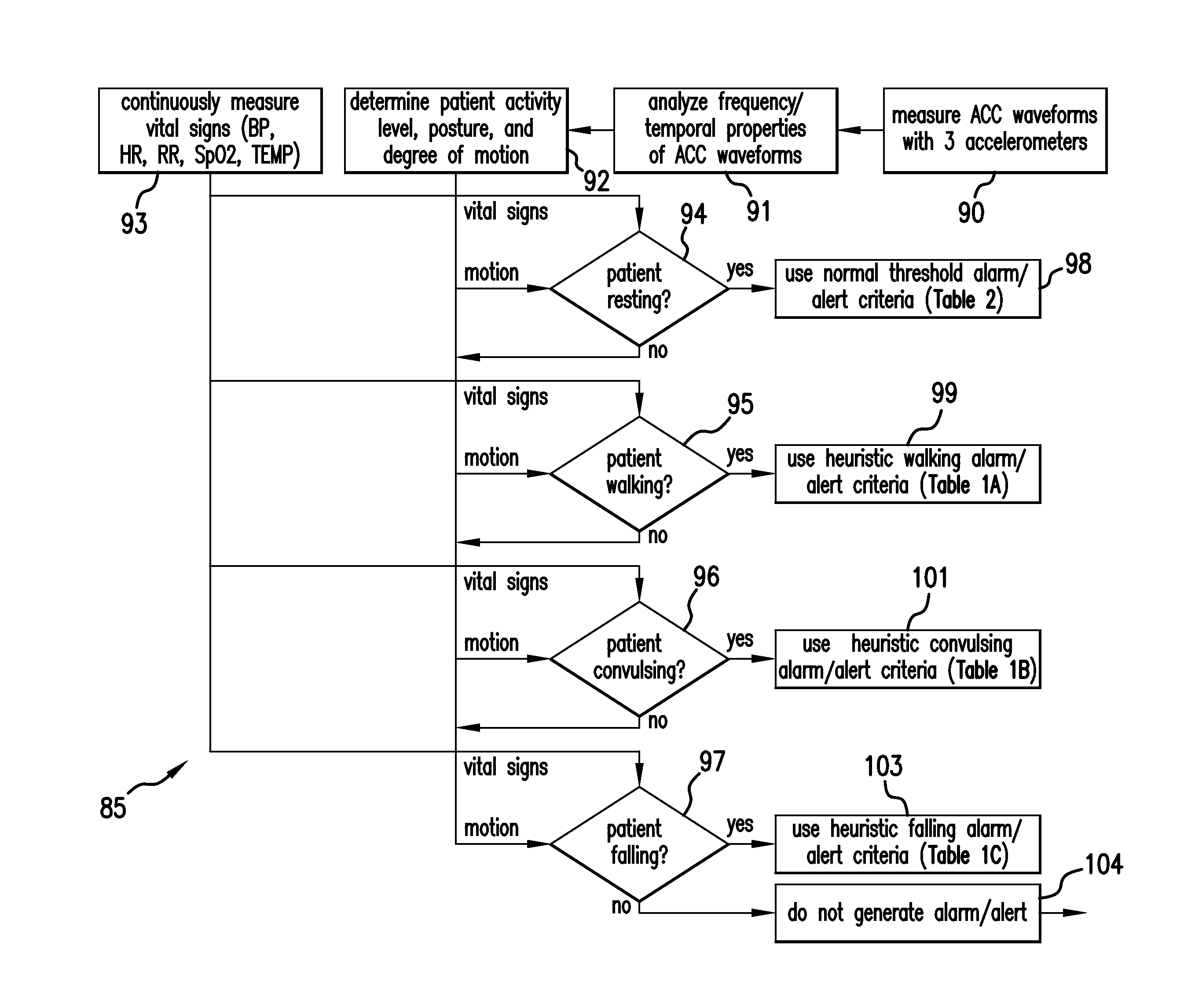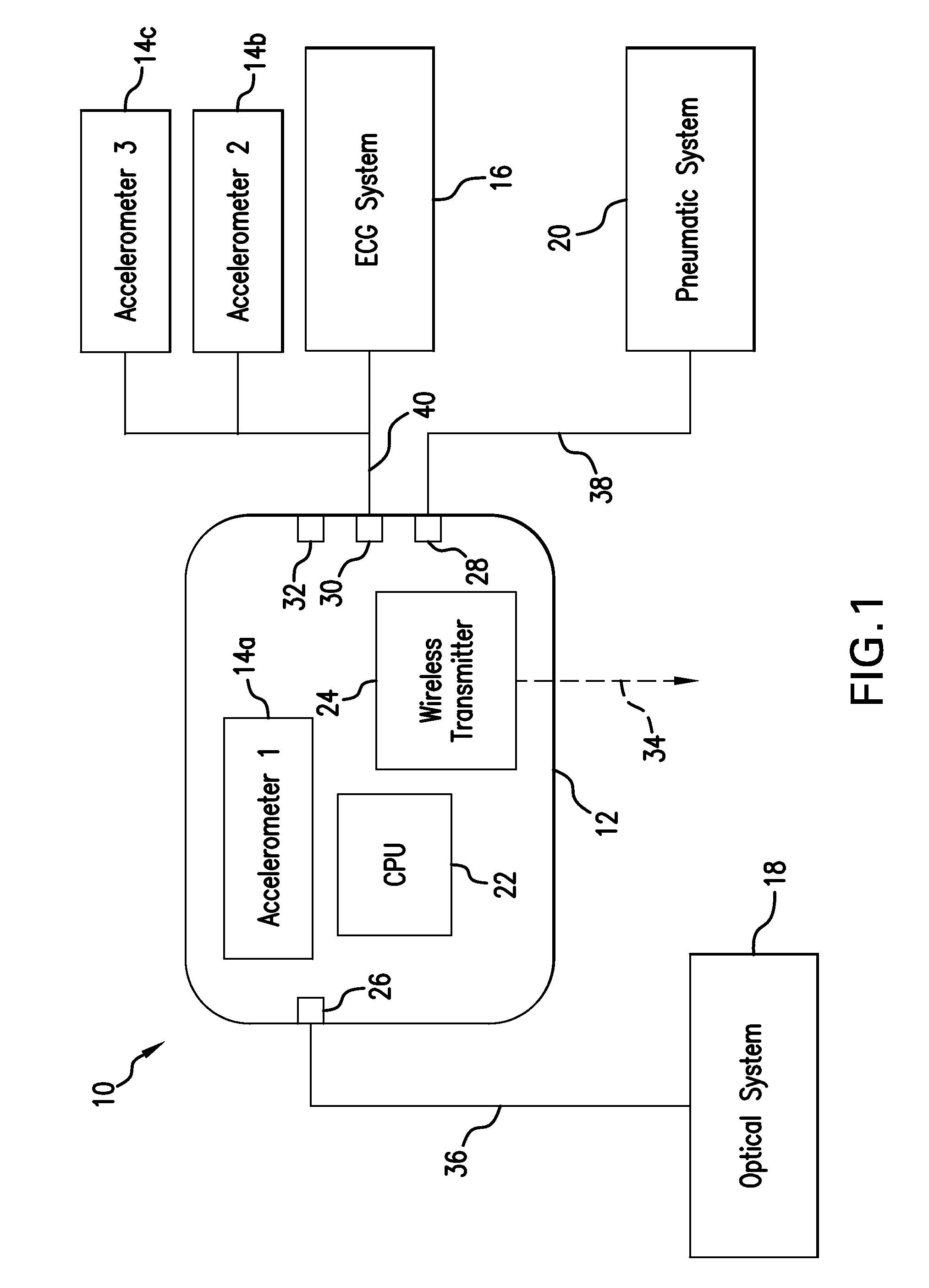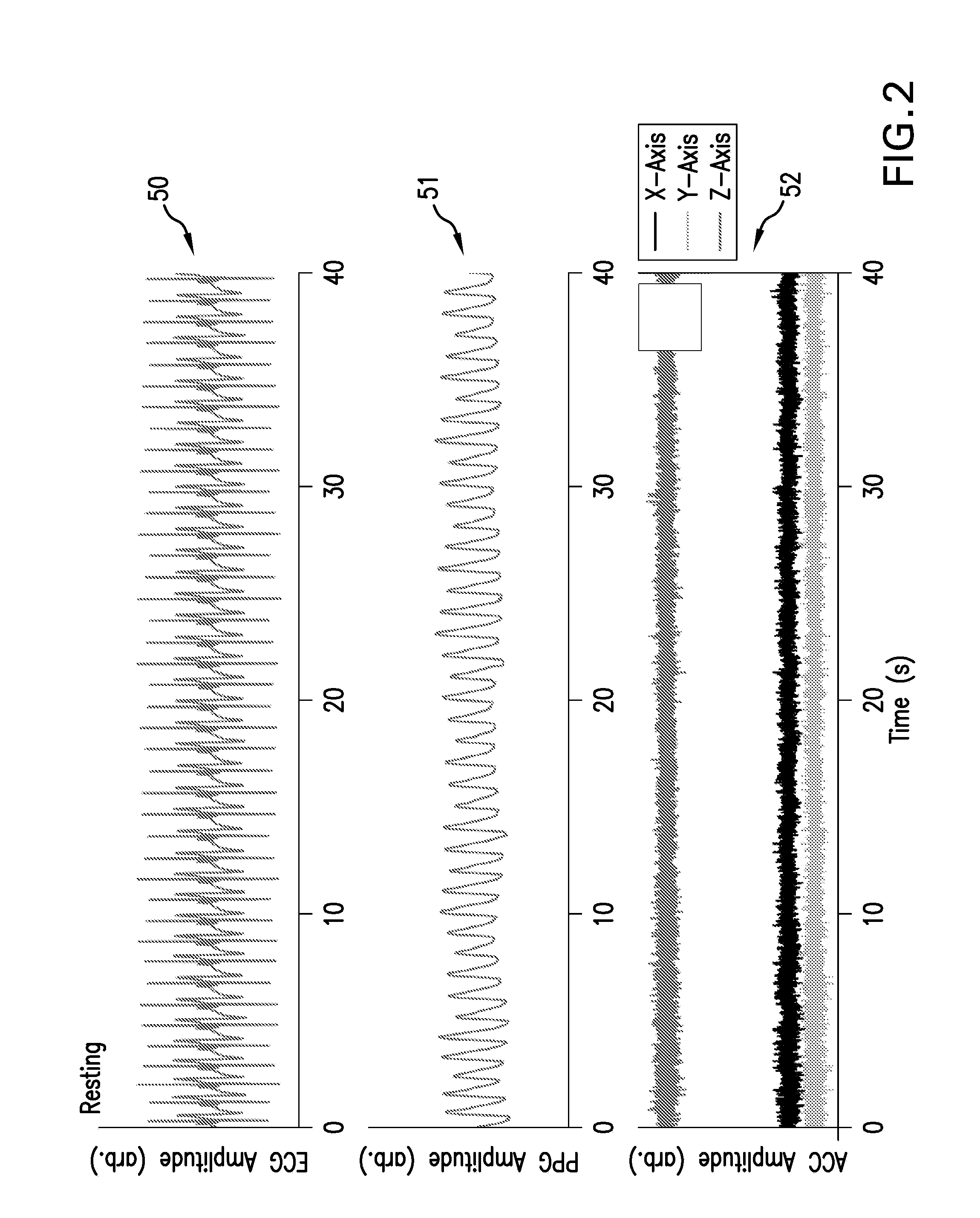Alarm system that processes both motion and vital signs using specific heuristic rules and thresholds
a technology of motion and vital signs, applied in the field of medical devices for monitoring vital signs, can solve the problems of dangerously wide alarm thresholds, severe impact on desensitization of medical professionals, etc., and achieve the effect of minimizing the corruption of vital signs and improving the safety of hospitalized patients
- Summary
- Abstract
- Description
- Claims
- Application Information
AI Technical Summary
Benefits of technology
Problems solved by technology
Method used
Image
Examples
Embodiment Construction
System Overview
[0058]FIG. 1 shows a schematic drawing of a body-worn monitor 10 according to the invention featuring a wrist-worn transceiver 12 that continuously determines vital signs (e.g. SYS, DIA, SpO2, heart rate, respiratory rate, and temperature) and motion (e.g. posture, arm height, activity level, and degree of motion) for, e.g., an ambulatory patient in a hospital. The monitor 10 is coupled to a software framework for determining alarms / alerts that processes both the motion and vital sign information with algorithms that reduce the occurrence of false alarms in, e.g., a hospital. The transceiver 12 connects to three separate accelerometers 14a, 14b, 14c distributed along a patient's arm and torso and connected to a single cable. Each of these sensors measures three unique ACC waveforms, each corresponding to a separate axis (x, y, or z), which are digitized internally and sent to a computer processing unit (CPU) 22 within the transceiver 12 for processing. The transceiver...
PUM
 Login to View More
Login to View More Abstract
Description
Claims
Application Information
 Login to View More
Login to View More - R&D
- Intellectual Property
- Life Sciences
- Materials
- Tech Scout
- Unparalleled Data Quality
- Higher Quality Content
- 60% Fewer Hallucinations
Browse by: Latest US Patents, China's latest patents, Technical Efficacy Thesaurus, Application Domain, Technology Topic, Popular Technical Reports.
© 2025 PatSnap. All rights reserved.Legal|Privacy policy|Modern Slavery Act Transparency Statement|Sitemap|About US| Contact US: help@patsnap.com



